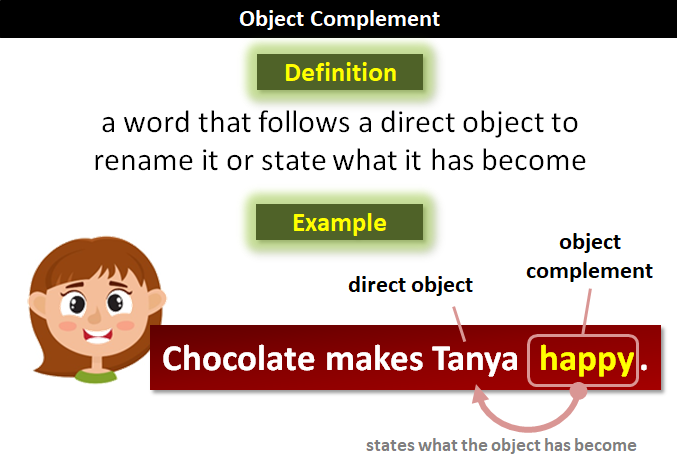An object complement is a noun, a pronoun, or an adjective that follows a direct object to rename it or state what it has become.
Object complements may follow certain verbs in English. Sentences with object complements follow the pattern: S + V + O + Complement. Object complements may be either nouns or adjectives. For example,
Chocolate makes Tanya happy
They considered him a criminal.
They considered him insane.
They elected him President anyway.
Examples of Object Complements
Here are some more examples of object complements:
I found the guard sleeping.
We all consider her unworthy.
I declare this centre open.
We consider fish spoiled once it smells like what it is.
To obtain a man’s opinion of you, make him mad. (Physician and poet Oliver Wendell Holmes)
An object complement is not always one word. It could be a phrase. For example:
I found the guard sleeping in the barn.
We all consider her unworthy of the position.
Don’t use an adverb as a complement.
A complement is an adjective, noun, or pronoun. It’s never an adverb. Look at this example:
- The garlic has made the soup awfully.

- The garlic has made the soup awful.

(An object complement cannot be an adverb.)
(Here, the object complement is an adjective.)
This is a rare mistake with object complements. It is far more common with subject complements. For example:
- The soup tastes awfully.

- The soup tastes awful.

(A subject complement cannot be an adverb.)
(Here, the subject complement is an adjective.)
Ironically, this mistake occurs most commonly with people who consciously think about whether they should be using adjectives or adverbs.

Very helpful
Very impressive.
very helpful in homework of school.
where can i find subject complement?